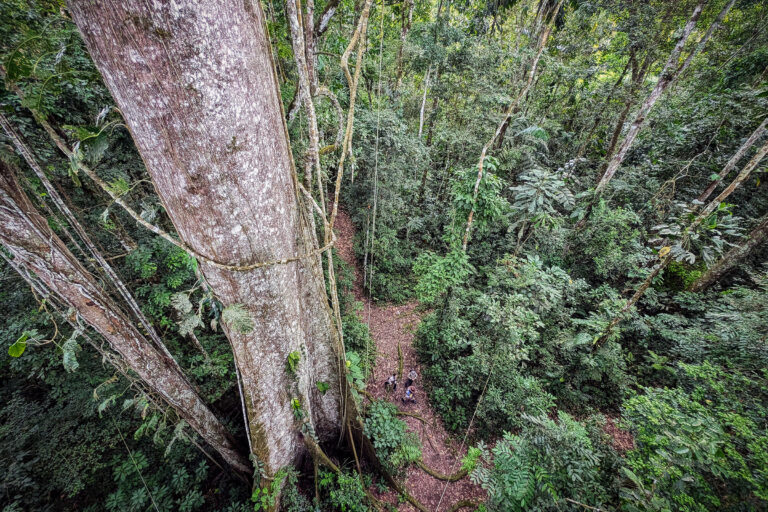A captive-breeding program for the Maugean skate, one of the rarest marine fish in the world, has given researchers hope: a baby Maugean skate has hatched from an egg laid in captivity, for the first time ever.
The Maugean skate (Dipturus maugeanus; formerly Zearaja maugeana) is today known to occur only in Macquarie Harbour, an estuarine area off the coast of Tasmania in Australia. Its actual population estimate is still uncertain, but researchers say there might be fewer than 1,000 individuals in the wild. Currently listed as endangered on the IUCN Red List, Maugean skates face pressures from coastal development, hydropower operations, ecotourism activities and salmon farming, which degrade water quality.
Noting the urgency of the Maugean skate’s decline, the Australian government in September 2023 announced a A$2.1 million ($1.4 million) investment to set up a captive-breeding program to create “an insurance population.” As part of this program, scientists at the University of Tasmania’s Institute for Marine and Antarctic Studies (IMAS) collected four adult Maugean skates and 50 eggs from the wild in December 2023, and moved them to a captive facility.
While tragedy struck soon — two adults died in the first two weeks — the program also saw some positive developments. More than half of the wild-collected eggs have hatched, producing healthy babies, the researchers note in a statement. Moreover, the only remaining female skate has laid more than 100 eggs in captivity, “two at a time, every four days on average,” Jayson Semmens, who leads the captive-breeding program, said in the statement.
Maugean skate eggs take about seven months to hatch, Semmens added, and the first healthy female baby arrived on July 10. This is the first time an egg laid in captivity, not one collected from the wild, has hatched, and the researchers say they expect more babies to emerge soon.
The captive male isn’t the father of the new baby, though, the researchers say. The male was kept in a separate tank until recently, and the female fertilized her eggs with sperm from previous mating in Macquarie Harbour, IMAS researcher David Moreno said in the statement. The two animals have now been put together, he added. “Now we’re witnessing some courtship behaviour, so we’re hoping the male and female will mate soon.”
The success of the captive-breeding program, however, hinges on addressing the threats in the wild, the Australian Marine Conservation Society and Humane Society International (HSI) said in a statement.
“We need to address the root cause of the harbour’s poor water quality, and that starts with the removal of intensive salmon farming,” said Lawrence Chlebeck, marine biologist at HSI. “If we’re serious about saving the skate from extinction, we’ve got to give it a home where it can survive in the wild. We cannot have salmon farming at an intensive scale and a healthy skate population in the same Harbour.”
Banner image of Maugean skate hatchling courtesy of Jayson Semmens.














